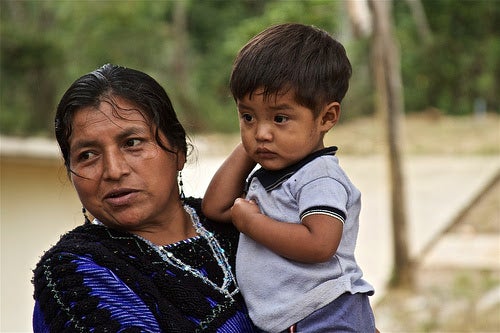Having worked in development banks for some time on topics relating to education, health and poverty reduction, it is both a challenge and a privilege to contribute to the work of the Social Protection and Health Division of the IDB in the area of early childhood development. This blog that we are launching today seeks to create a space for deepening the dialogue, interacting, and reflecting together on this topic. We invite you to review it frequently, contribute your experiences and comments , and recommend it to your friends and colleagues.
One of the questions that frequently comes up when my friends or acquaintances ask me about my work is: what does early childhood development have to do with social protection and health? Here’s how I see it:
- Most children in our region, especially poor children, come into contact with the State for the first time via the health system. Or at least governments are actively trying to reach out to them through investments in maternal-child healthcare. This first contact between parents and their young children and the State provides a unique opportunity to identify and support the most vulnerable among them.
- Recently, more and more people in the region use a life cycle approach -centered around the family- as a frame for social protection systems. Consequently, it is the role of social protection systems to ensure that poor families have an adequate foundation in place for the development of their youngest members.
- Doctors, psychologists and nutritionists have documented that children need a multi-dimensional package of wellness interventions in their first years of life. These include healthcare before and after birth, the opportunity to breastfeed and access to good complementary nutrition, and high-quality, stimulating and affectionate interactions with the adults and other children in their environment. Together, all of these factors, when provided at the appropriate times, establish a solid foundation for development. Since responsibility for providing these services is usually scattered among several different governmental institutions, cross-sectoral coordination is fundamentally important in the area of childhood development. Consider how quickly the short window of opportunity for action—the first few years of life—passes, and the complexity of creating good public policy for the sector increases.
- In practice, many of the child development programs and services in place, in particular those that target the very young, have been the prerogative of organizations that are considered the key actors in the social protection arena, such as ministries of social development and wellbeing, or institutes for children and families (ChCC, ICBF, INFA, MIMDES, SEDESOL, according to their Spanish acronyms, to name a few). In the region, education ministries usually don’t start to provide education services until children reach preschool or even elementary school.


Leave a Reply